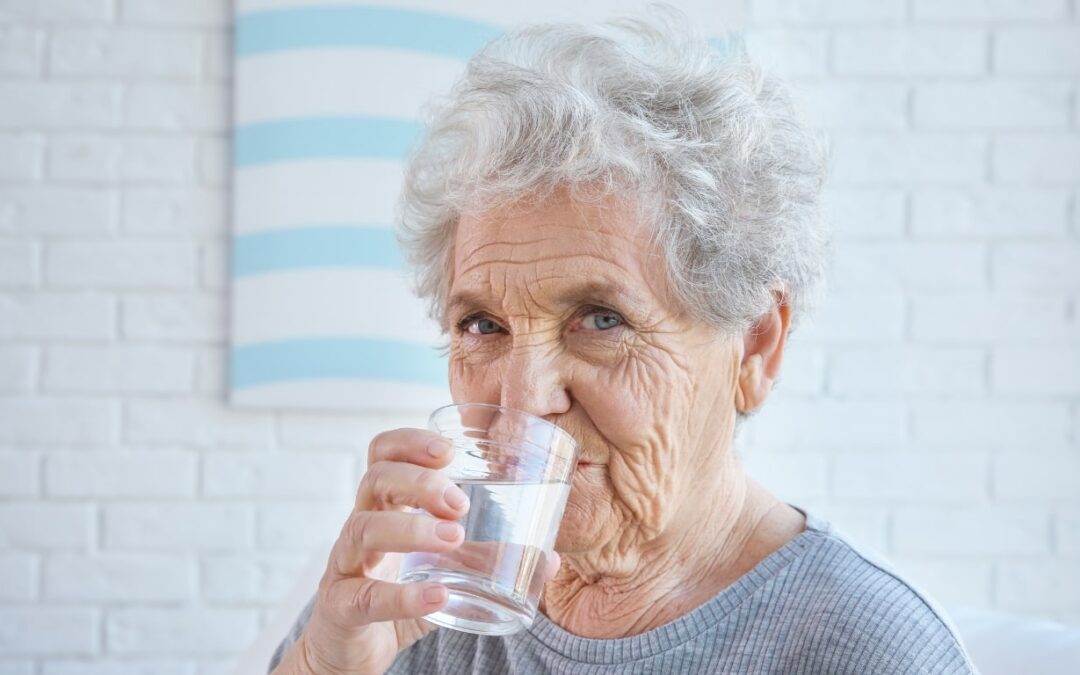When caring for a senior loved one, it’s easy to focus on things like medication management, mobility, or nutrition—but one of the most overlooked aspects of senior health is hydration. As we age, our bodies become less efficient at conserving water, and our sense of thirst naturally diminishes. This makes seniors more vulnerable to dehydration, even when they don’t feel thirsty.
At Reliant Home Care Services, we understand how small daily habits can have a big impact on healthy aging. Staying properly hydrated is one of the simplest—and most important—ways to support your loved one’s well-being, independence, and overall quality of life.
Why Seniors Are More Prone to Dehydration
Dehydration occurs when the body loses more fluids than it takes in. For seniors, several age-related factors contribute to this imbalance:
- Decreased thirst response: Older adults may not feel thirsty even when their bodies need water.
- Changes in kidney function: The kidneys become less efficient at conserving fluids with age.
- Medication side effects: Diuretics, laxatives, and some blood pressure medications increase fluid loss.
- Reduced mobility or cognitive function: Seniors with limited mobility or memory loss may simply forget to drink water regularly.
- Chronic health conditions: Diabetes, heart disease, and kidney issues can all affect fluid balance.
According to the National Institutes of Health, dehydration is one of the most frequent causes of hospitalization for people over 65, and it can lead to serious complications if not addressed promptly.
Health Risks of Dehydration in Seniors
For older adults, even mild dehydration can quickly escalate into a serious health issue. Some of the most common risks include the following:
- Urinary tract infections (UTIs): A lack of fluids can concentrate urine, making UTIs more likely.
- Kidney stones and kidney failure: Chronic dehydration puts extra strain on the kidneys.
- Constipation: Water is essential for healthy digestion and regular bowel movements.
- Dizziness and falls: Dehydration can cause low blood pressure and lightheadedness, increasing the risk of falls.
- Confusion and cognitive decline: Seniors may experience confusion or delirium when dehydrated, sometimes mimicking symptoms of dementia.
- Heat-related illnesses: In warm weather, dehydration can lead to heat exhaustion or heat stroke, both of which are medical emergencies.
Being aware of these risks is the first step in helping your loved one stay safe and healthy.
Signs of Dehydration to Watch For
It’s important to recognize the early signs of dehydration in seniors, especially since they may not communicate their symptoms clearly. Look for cracked lips and dry mouth, signs of fatigue, confusion, irritability, dizziness, headaches, dry skin, and sunken eyes.
If your loved one is showing several of these signs, especially alongside a fever or inability to keep fluids down, seek medical attention immediately.
How Much Fluid Do Seniors Need?
While fluid needs can vary based on weight, health conditions, and activity levels, a general guideline is about 6 to 8 cups of water per day. This can come from a variety of sources, not just plain water. Broths, herbal teas, milk, and even water-rich fruits like watermelon and cucumbers all count toward daily fluid intake.
It’s worth noting that caffeinated and alcoholic beverages can contribute to fluid loss, so it’s best to enjoy those in moderation.
Tips to Help Your Loved One Stay Hydrated
Supporting hydration doesn’t have to be complicated. Here are a few simple strategies to encourage fluid intake throughout the day:
- Keep water easily accessible: Place water bottles or cups within easy reach, especially near favorite chairs or beds.
- Offer small amounts regularly: Some seniors feel overwhelmed by large glasses. Offering smaller sips throughout the day can be more manageable.
- Incorporate hydrating foods: Soups, smoothies, gelatin, yogurt, and fresh fruits can help boost hydration levels.
- Use reminders: Set alarms, place sticky notes, or use hydration-tracking apps if your loved one is tech-savvy.
- Make it appealing: Add a splash of fruit juice or slices of lemon, cucumber, or berries to enhance the flavor of water.
- Monitor urine color: Light yellow is a good indicator of adequate hydration.
If your loved one resists drinking fluids, try making it a shared activity. Sit with them, enjoy a cup of tea together, or toast to a good day. Sometimes, companionship makes all the difference.
A Simple Way to Support Healthy Aging
Hydration may seem like a small thing, but it plays a vital role in senior nutrition, energy levels, and long-term health. Just as we carefully plan meals, medications, and activities, keeping an eye on fluid intake is essential to ensuring your loved one thrives.
At Reliant, we’re here to support every aspect of healthy aging from nutrition and hydration to companionship and daily care. Our caregivers are trained to recognize the signs of dehydration and to encourage healthy hydration habits throughout the day.
If you need help supporting your senior family member’s health at home, contact Reliant today. We’re here to help you navigate every step of the caregiving journey with compassion, support, and expert care.




